Curbing misconceptions to bolster South Sudan's COVID-19 vaccination numbers
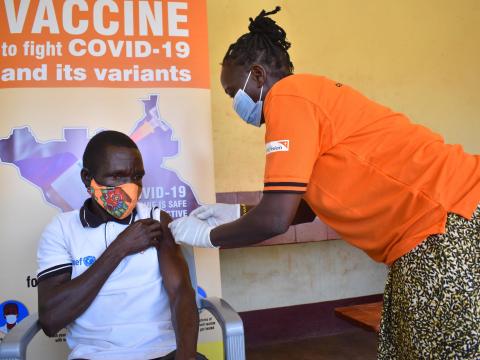
“My father Makur tested positive of COVID-19 in August. I was scared that he would not make it. I thought the coronavirus would kill him”, shares 21-year old Yar Makur, a student at Maridi School of Nursing and Midwifery.
“Thank God his symptoms were mild as he was already vaccinated with AstraZeneca,” she adds. Yar said that she now understood that the vaccine is not just meant to prevent infection but those vaccinated will get mild symptoms if infected thus reducing hospitalization.
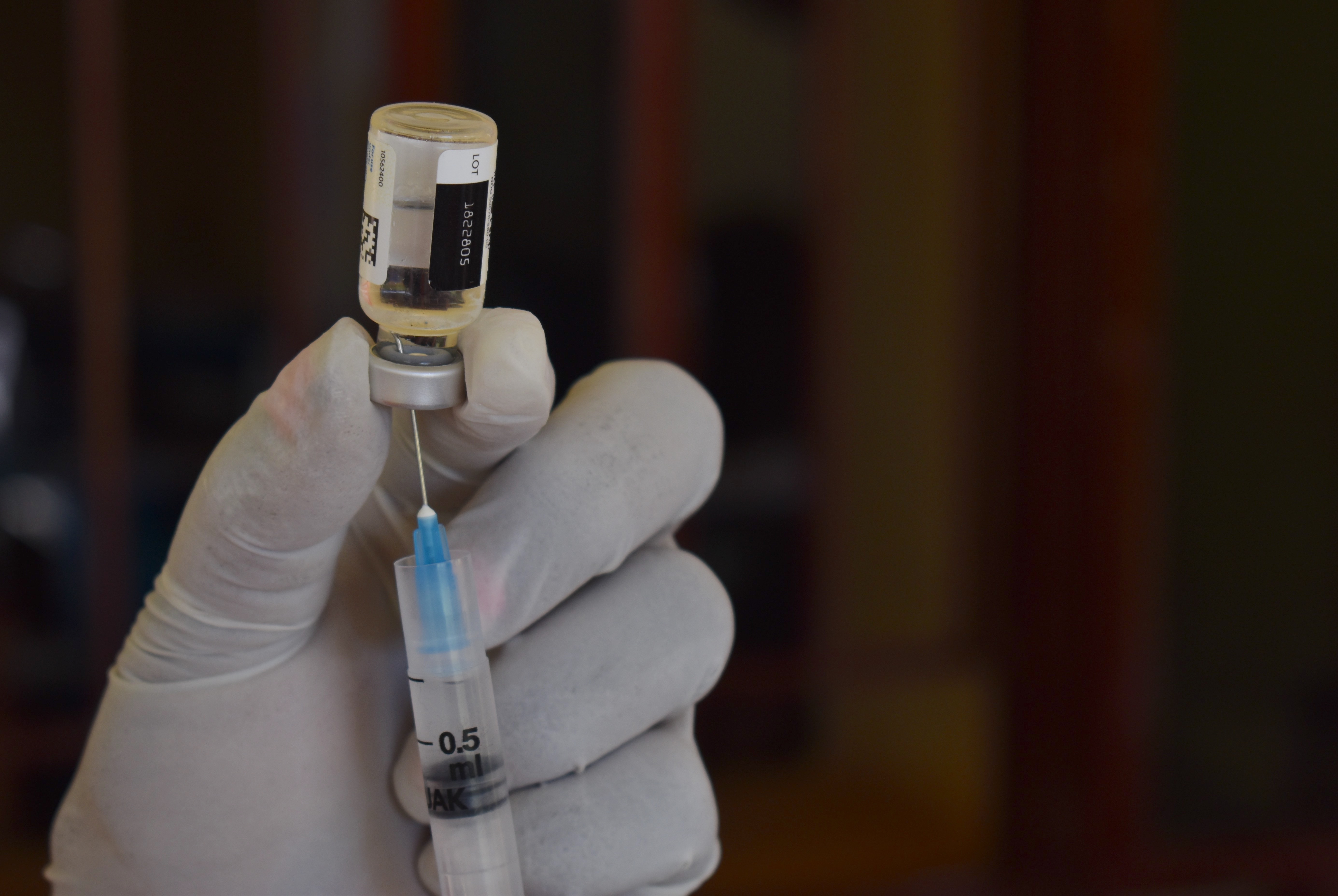
As of November 11, 2021, the Ministry of Health reported that, out of its estimated 12 million population, the number of people vaccinated against COVID-19 in South Sudan is 153,456 of which only 31% are women compared to 69% men.
In South Sudan’s Maridi County with 14,000 people, only 1,121 people have been vaccinated since April 2021 with both AstraZeneca and Johnson and Johnson vaccines. Myths and misconceptions associated with the COVID-19 vaccine are major contributors to the hesitancy particularly among women.
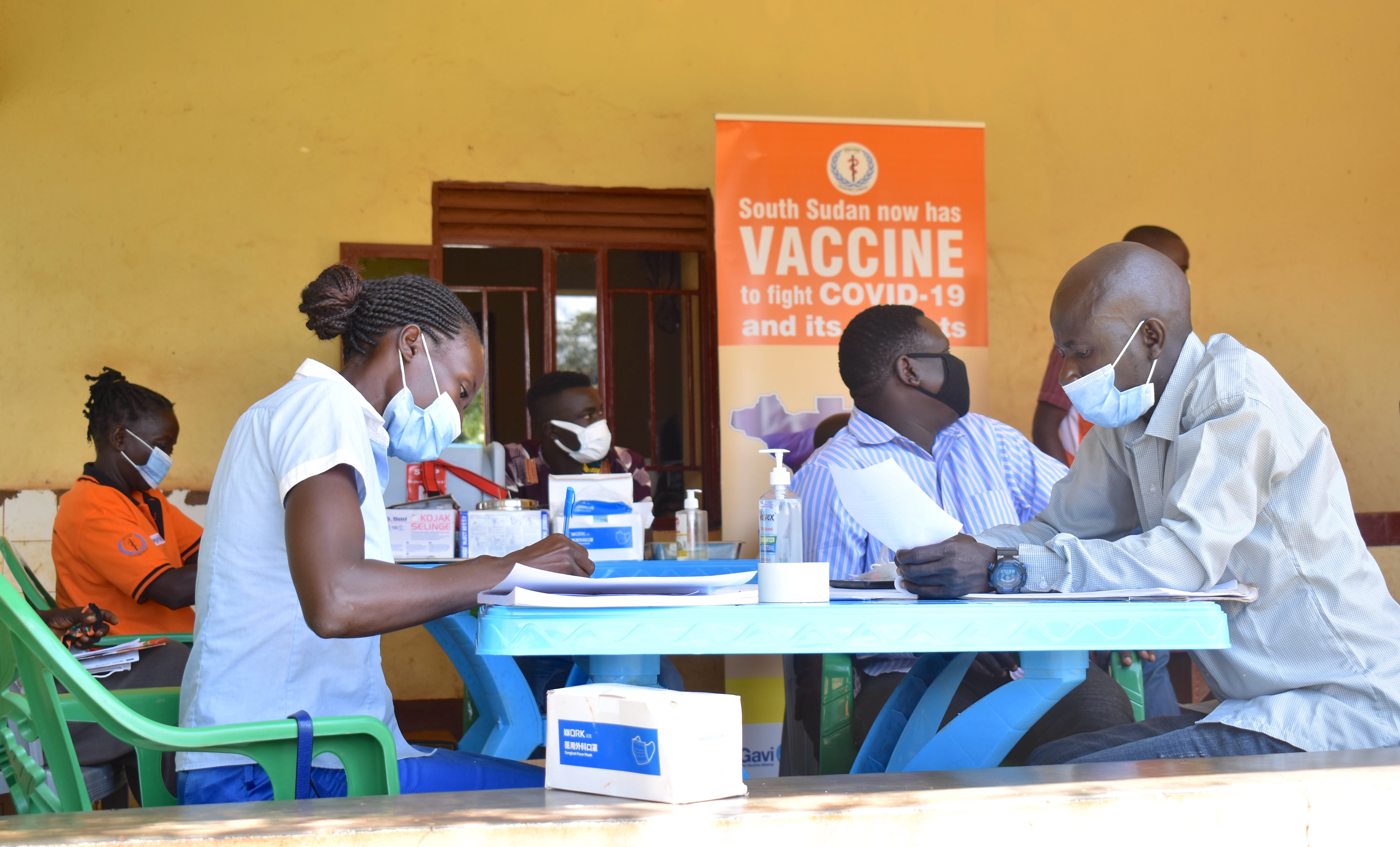
To address this ongoing issue, World Vision’s CORE Group Polio Project supported by the US Agency for International Development (USAID) organized an advocacy meeting with the county’s community leaders to address this misinformation hounding the vaccine.
Yar shared during the meeting that her 63-year-old father complained of headache, cough and sore throat. She says, “We thought it was malaria. When he went for a test at the Public Health Laboratory, he was found positive for COVID-19 and was advised to isolate at home for 14 days”.
All the myths I had about the COVID-19 vaccine have been addressed and I have decided to be vaccinated with Johnson & Johnson COVID-19 vaccine.
“All the myths I had about the COVID-19 vaccine have been addressed and I have decided to be vaccinated with Johnson & Johnson COVID-19 vaccine”, she says.
Violes Aida, 41, and a mother of six, says, “Just like other vaccines that we took while growing up and when pregnant, I believe the COVID-19 vaccine is safe and can protect us from the virus. It is better to be vaccinated and be safe than die when protection is available.”
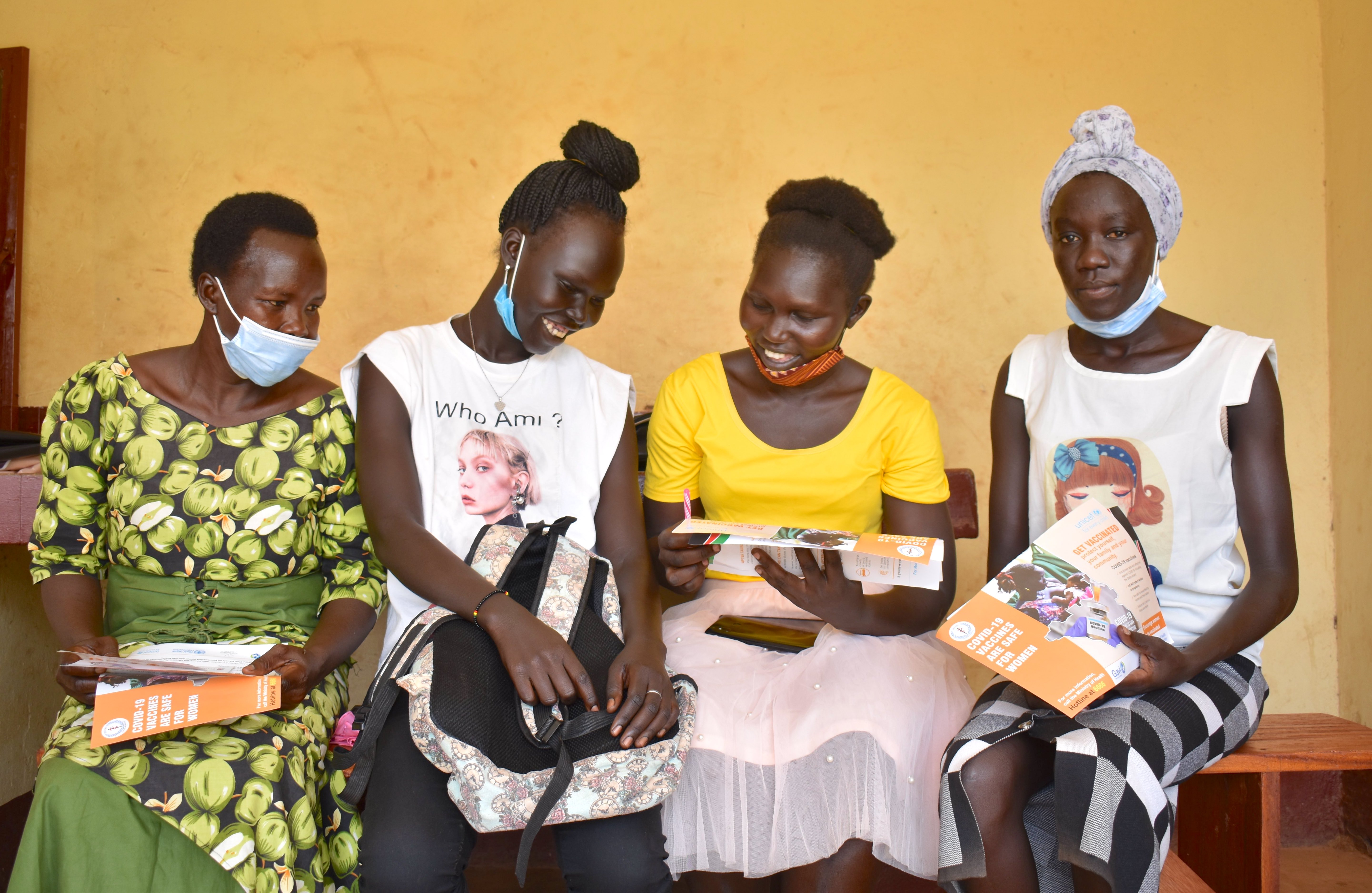
Her mother Rosa Johnson, 68, has been vaccinated with AstraZeneca during the first launch in Maridi. “My mother encouraged me. She only complained about a headache and after two days she fully recovered”, Violes says.
She admitted that most women in her community refused to be vaccinated because of the belief that it can cause infertility, which she now knew, is not true.
Rumbe Samuel, Deputy Project Director of CORE Group Polio Project, explained that they have to embark on an awareness campaign in 21 counties in Central, Eastern and Western Equatoria States to campaign on the importance of the vaccination.
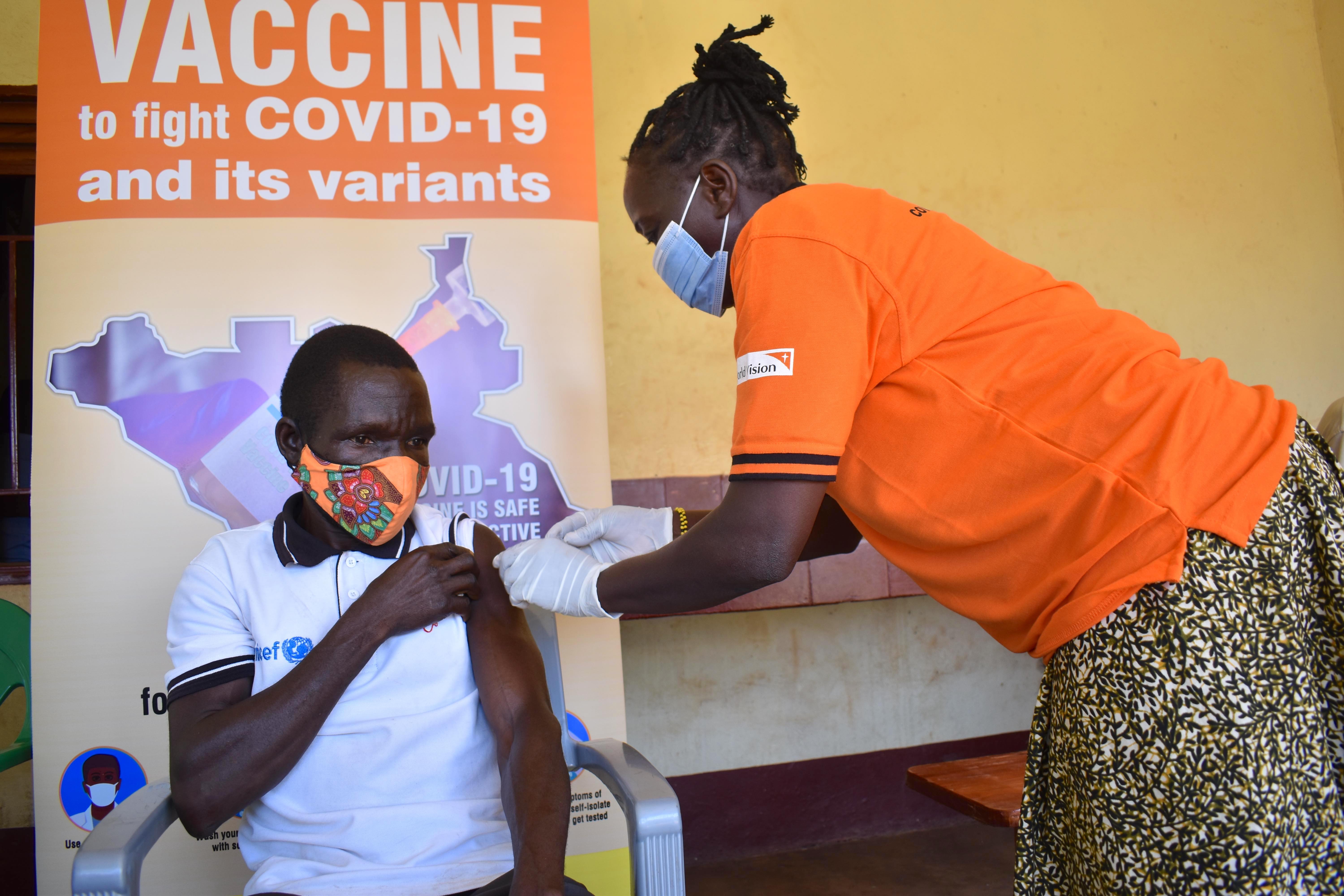
Samuel says, “The project uses Community Based Surveillance (CBS) network of 440 boma health promoters to address information gaps in the communities, which causes the low vaccine uptake.”
He concludes, “We organize advocacy meetings with community leaders, conduct house-to-house visits and street announcements and join radio talk shows. We campaign in public places like schools, churches, markets to make sure everyone is aware and will not be left behind.”
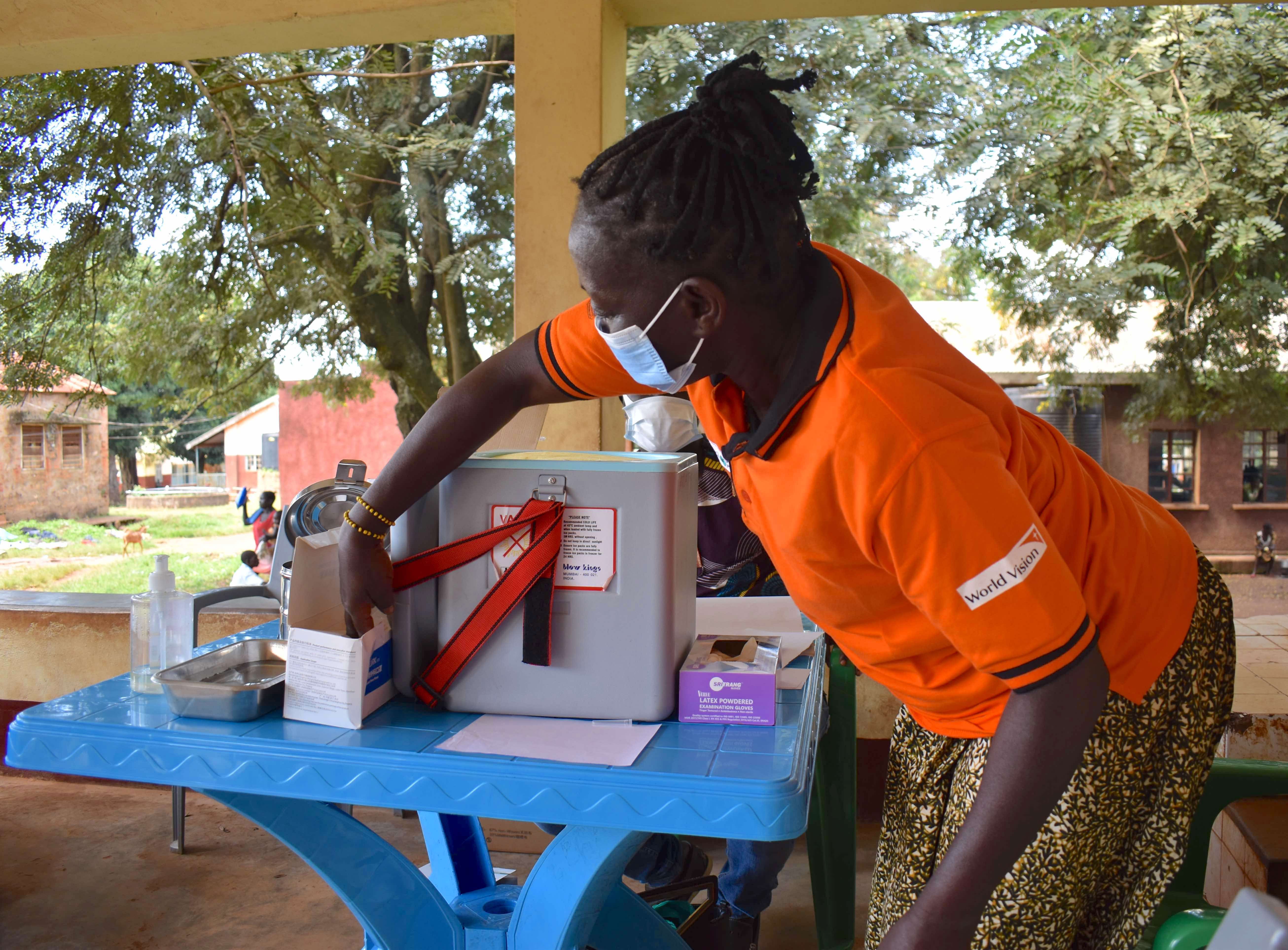
Related Story: South Sudan's officials set example by getting vaccinated
Story and photos by Jemima Tumalu, Communications Officer